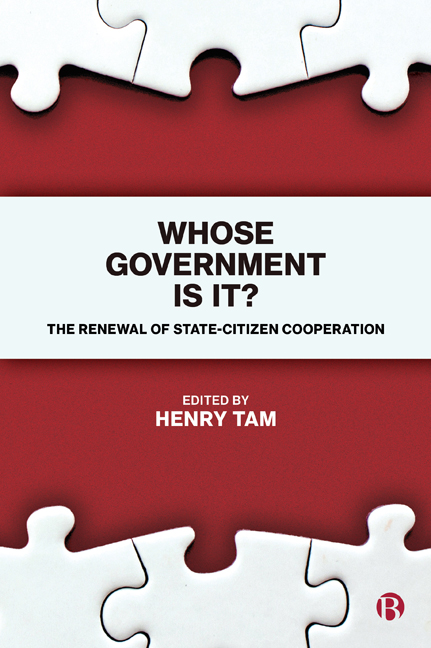12 - Rethinking Civic Roles
Published online by Cambridge University Press: 27 April 2022
Summary
The preceding chapters have painted a vivid picture of the growing gap between elected representatives and citizens that contributes to ‘the disenchantment, disengagement and, at times, mutual incomprehension that exists now between the citizen and the state’ (DCLG, 2007). Our systems of governance may seem bewildering: Who is accountable to whom? How? Promoting understanding about how our democracy works is a key element in addressing this issue, but alone it will not suffice. Political engagement depends not only on what people know but on how they feel, not least about politicians (Coleman, 2005) and here the omens are not good. People have lost confidence in elected representatives. Politicians are no longer seen as part of the solution to the profound changes of our time but instead as part of the problem – despite the UK having, by international standards, competent, hardworking and honest politicians at all levels of governance.
Politicians and citizens seem a world apart, each looking, talking and behaving very differently from one another. Fairly or not, politicians are perceived to be a separate ‘political class’ far removed from the lives of ordinary people (for example, Riddell, 1995, Coleman, 2005; DCLG, 2007; Mair, 2013; Wright, 2013). The term ‘political class’ is often used loosely but Allen and Cairney (2017) distinguish three elements: a political elite; the professionalisation of politics (with politicians able to make a living from politics alone); and political careerism (with politicians having worked in the political sphere prior to being elected). Of course some sort of political elite is inevitable in any complex society but access to it will be influenced by the degree to which politics has become professionalised and the extent of political careerism, both of which tend to separate the experiences of elected representatives from those whom they represent. With the rise in the number of career politicians comes ‘the tendency of politicians … to develop a private language, private quarrels, their own interests, priorities and preoccupations ’ (King, 1981, p 278). The expenses scandal in Westminster in 2009 only heightened a sense that different rules applied to parliamentarians from ordinary people and led to politicians in general being tarred with the same brush. We know that the behaviour of politicians plays a significant role in fuelling political discontent (Jennings et al, 2016).
- Type
- Chapter
- Information
- Whose Government Is It?The Renewal of State-Citizen Cooperation, pp. 195 - 212Publisher: Bristol University PressPrint publication year: 2019



